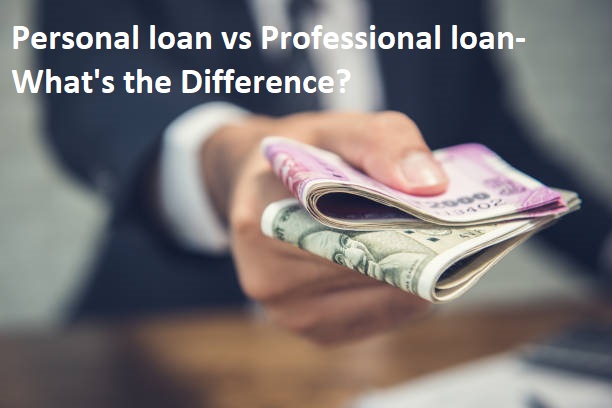There are many similarities between Personal loans and professional loans, misleading for potential borrowers. This article highlights some key differences between the two.
Personal Loans are usually availed of if there is an unexpected circumstance that requires money or a big purchase that you wish to make. They can be availed by most individuals quite easily. However, if you are a professional and require funds for business or personal expenses, you have another avenue apart from personal loans. These loans are called professional loans. Like instant personal loans, they are also unsecured, meaning they do not need collateral attached to the borrowed money.
Features of Personal and Professional Loans
When submitting a personal loan application, borrowers must be aware of the several advantages linked to it. The first and foremost benefit is its versatility, wherein borrowers can use it for any purpose. These purposes can include things such as:
- Home renovation
- Vehicle purchase
- Wedding expenses
- Covering travel costs
- Financing higher education
In addition to this, personal loans are simple to apply for and quite easily sanctioned. Furthermore, personal loan interest rates range from as low as 11.99% to 36 % and give you the option of flexible tenures that range from a period of 12months to 60 months. All these benefits put into perspective why personal loans are an excellent option for funding in times of need.
Comparing the features, most of them are similar and do not have many differences. The only difference lies in the interest rate structure. Professional loans are better priced in this aspect since they have a 9.99% interest rate per annum for a sample amount of 10 lakhs over 36 months.
Personal Loan Eligibility
When it comes to eligibility for a loan, parameters for both largely remain the same. The differences in eligibility for loans are subject to change based on the bank or lender. The following are a few common eligibility factors:
- Your credit score and history have a significant role. The lower your credit score, the higher the interest.
- Disposable income must be stable. It helps lenders understand what your repayment capacity is.
- The debt-to-income ratio is an aspect many people overlook. When availing of a loan, lenders look into this to understand what percentage of your income goes towards paying back previous debts.
- Misdemeanours when it comes to prior credit settlements are a vital part of your eligibility for the loan.
- The organisation you work for or the business you run is a critical factor in your eligibility. It helps the lenders gauge whether your income is volatile and how stable it is.
The points mentioned above are significant factors that lenders of both professional and personal loans consider. Make sure you check off all the boxes to ensure a speedy sanction and hassle-free loan taking process. The primary difference regarding eligibility is a more in-depth checking of organisations you work for or your business.
Documentation
Both these loans have different documentation processes and requirements. The following are the documents required for personal loans:
- A recent, coloured passport size photograph
- Aadhar card
- PAN card
- Income proof
- Bank statements
Documentation for personal loans is minimal and does not require documents that you will not readily find. However, professional loan documentation is a little more complex and calls for more documents to be submitted. The following is a list of the same:
For self-employed professionals:
- PAN Card
- Aadhaar Card
- Proof of residence address: Passport, rent agreement, electricity bill, or gas bill
- Proof of business address: electricity bill or rent Agreement
For a firm or company:
- Firm’s or company’s PAN Card, address proof of the business, and other registrations as applicable
- If you are the proprietor, partner, or director, then you need to submit your:
- PAN Card
- Aadhaar Card
- Residence address proof (electricity bill, rent agreement, or passport)
Additional documents include:
- Bank account statement of the last six months (operative bank account)
- Certificate of your degree
- Certificate allowing practice
Submit all these documents promptly and avoid any back and forth with lenders that may cause glitches in the process.
It is crucial to keep in mind these differences to ensure that you make the right financial decision. This way, you can ensure you make your repayments on time and have the best possible loan experience. Therefore, some diligent research and looking into all your options prevents any possibility of setbacks to your financial health!

